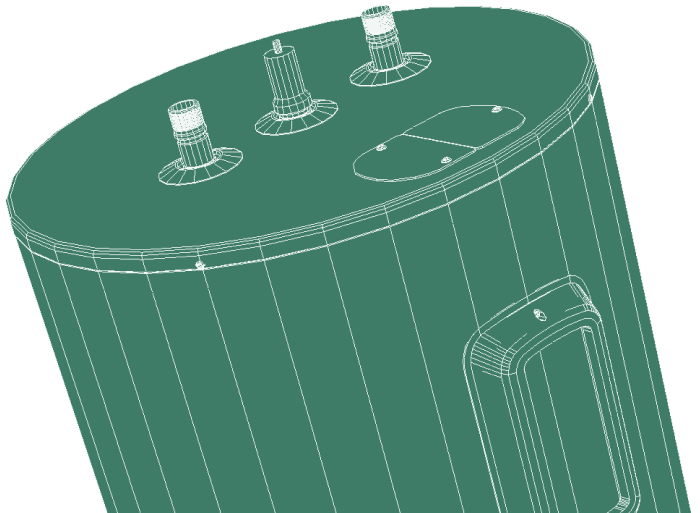Water heater troubleshooting & hot water support

Hot water should be hassle-free, but numerous problems can occur and disrupt your day.
For example, daily corrosion inside your tank can reduce the lifespan of the water heater, create rotten egg smell and hydrogen sulfide gas, and cause limescale deposits that reduce energy efficiency. Understand the root cause and solutions for your concern here.
Water Smells Like Rotten Eggs: Understanding Hydrogen Sulfide in Water
Your hot water … is smelly? Stinks? Smells like rotten eggs or sulfur? There are dozens of ways to name this pretty common and hard to bear concern. If the odor is located only in hot water, this means the sulfate-reducing bacteria are rapidly growing in the water heater and create an intolerable odor. Fortunately, solutions exist to handle it regardless of the composition of your water and water treatment system.
Water Heater Leaking from Bottom
Some leaks look like ones but aren’t at all. Moisture from the air that has condensed is a typical example. Some others are easy to repair like the ones originating from the water connections, drain valve or temperature and pressure relief valve. However, if the leak comes from the internal part of your tank, it is too late and you should now think about better protecting your next water heater to postpone corrosion.
What Is Hard Water Stains and How To Prevent It
Limescale deposits cause significant costs for the rehabilitation of water pipes and heating installations and are also responsible for significant energy losses. By reducing mineral build up inside the tank, it can help improve the water quality while reducing stress on the tank to reduce energy costs. Destabilizing the calcium molecule found within the water has the effect of reducing hard water stains.
Air in Hot Water Line
Air in hot water lines can be a bigger problem than just spilling water everywhere. This normally indicates that your water is very corrosive and your water heater life will be reduced. Chances are your water softener accelerates the corrosion of your tank. If the root cause is the corrosion, stopping it inside the water heater will stop that reaction that creates air in your hot water.
Water Heater Sediment
Sediment buildup in your water heater can be a greater issue than just causing inconsistent hot water supply. In some cases, your water softener might contribute to the sediment accumulation, inadvertently accelerating the wear and tear of your tank. If the root cause is indeed sediment buildup, eliminating it within the water heater will stop the chain of events that culminate in a range of problems - from inefficient heating to overconsumption of electricity or gas.
Water Heater Corrosion
Discover the causes and consequences of water heater corrosion in our comprehensive article. Learn how this common issue can lead to leaks and breakdowns, and explore the importance of proper maintenance. Find out why Corro-Protec is the ultimate solution to prevent water heater corrosion and protect your investment.
Your hot water problem is not listed?
Many water heater problems can happen, but some of them are more dangerous than others. Before investigating your gas water heater or your electric water heater, remember to always turn off the power using the circuit breaker or the pilot light and make sure you call a professional to do further investigation.

A plumber can help you with many problems like replacing the anode rod, regulating hot water pressure, finding water leaks, and replacing heating elements.
If you have problems with both hot and cold water, it is likely coming from your well or water supply, not your water heater. Older homes may need some updates to avoid these issues.